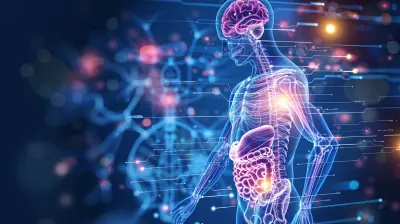The Gut-Brain Axis: How Your Digestive Health Affects Your Mind
18 September 2025
Ever heard the phrase “trust your gut”? Turns out, it’s more than just a catchy saying. Your gut and brain are in constant conversation, chatting like old friends over coffee. But here’s the kicker—this gut-brain chatter can significantly impact your mental health. Imagine your gut as a command center, silently influencing your mood, emotions, and even how you think. Yep, that seemingly unassuming digestive system of yours packs quite a punch when it comes to your overall well-being.
Let’s dive into the fascinating world of the gut-brain axis to get a better grasp on how your digestive health directly impacts your mind. Spoiler alert: by the end, you'll realize nurturing your gut might just be the secret sauce to a calmer, happier you. 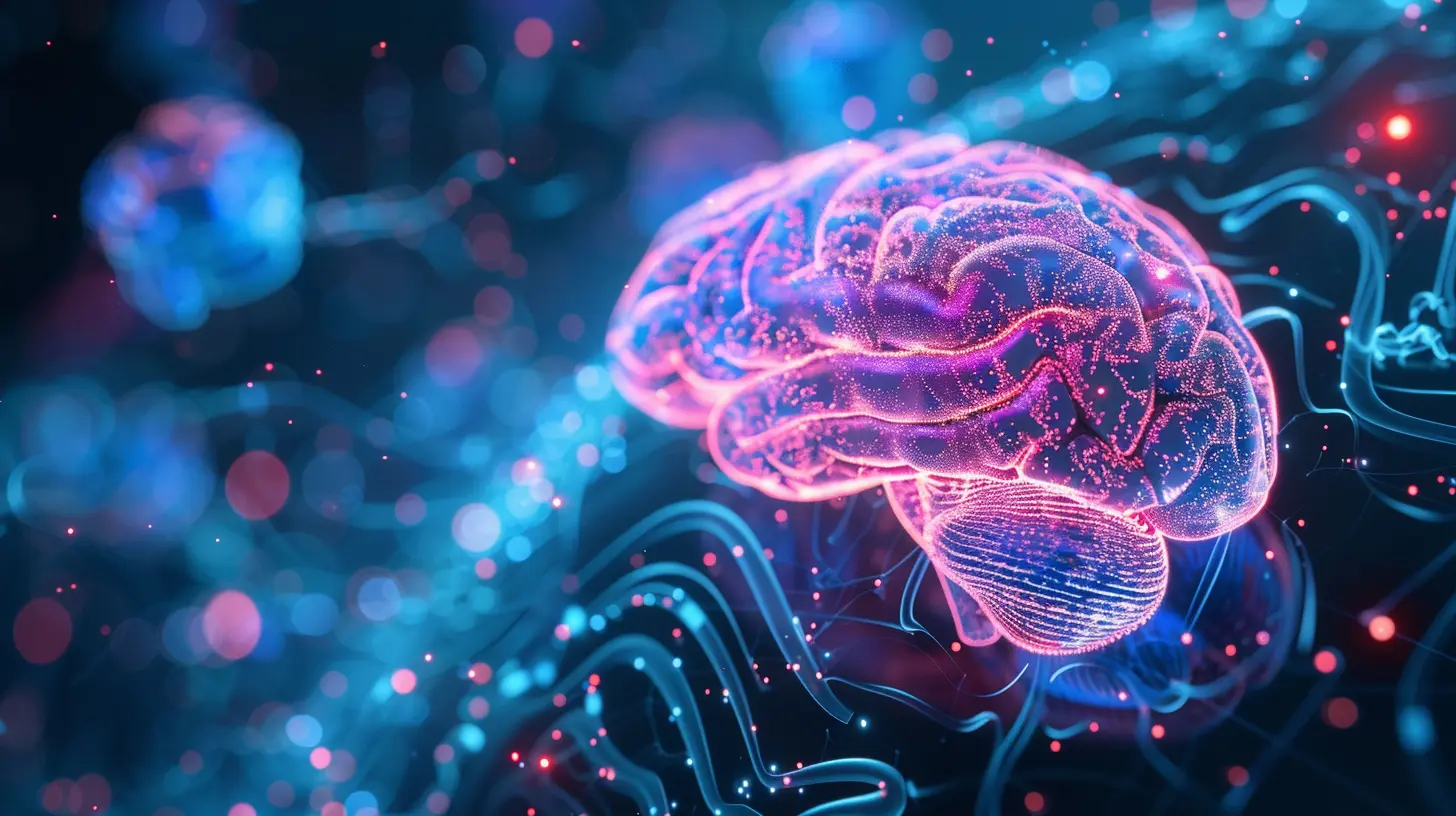
What Exactly Is the Gut-Brain Axis?
Picture your gut and brain connected by a two-way superhighway. That’s the gut-brain axis (GBA) in action. It’s a complex communication network linking your central nervous system (your brain and spinal cord) with your enteric nervous system (the one in your gut).Think of it like a WhatsApp group chat. Messages are sent back and forth constantly. Your brain lets your gut know when you’re stressed, while your gut tells your brain what’s going on with digestion and microbes. The two are so intertwined that when one’s out of whack, the other often suffers too. Crazy, right?
But here’s where it gets even more mind-blowing. The gut isn’t just passively listening to your brain—it’s actively influencing it. In fact, your gut produces around 95% of your body's serotonin, the “feel-good” hormone. So, if you’re battling mood swings or anxiety, your gut may have something to say about it. 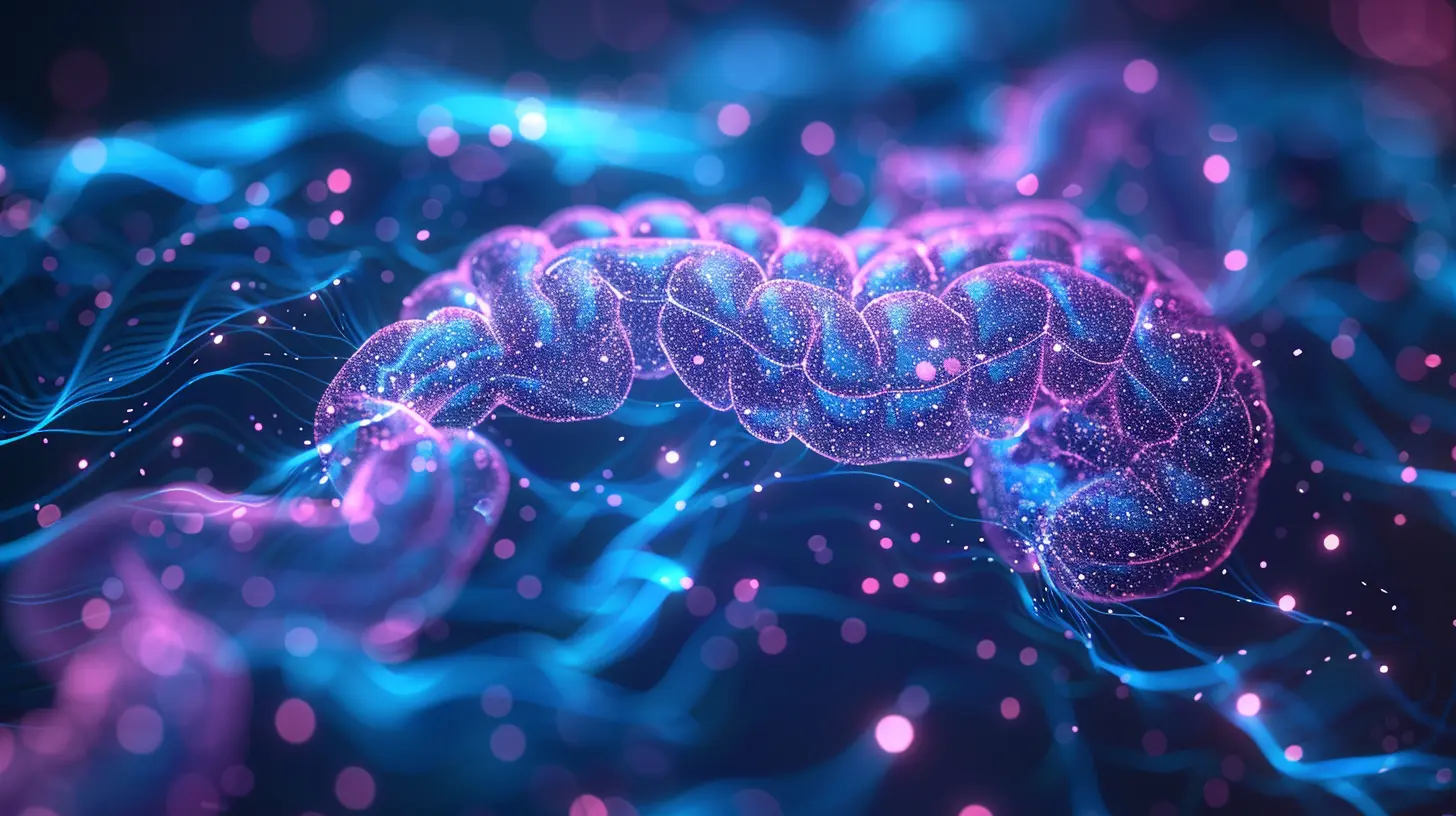
Your Gut Microbiome: The Supporting Cast
Let’s talk about the unsung heroes of your gut—the gut microbiome. This is your gut’s own squad of trillions of bacteria, fungi, and other microorganisms. Don’t let the word “bacteria” freak you out; not all of them are bad. In fact, many of them are absolute rockstars for your health.Your gut microbiome acts like the backstage crew at a concert, making sure everything runs smoothly so the star performers (a.k.a., your digestive system and brain) can shine. It helps break down food, regulate your immune system, and—wait for it—communicate with your brain.
When your gut microbiome is thriving, your brain feels the love too. But if it’s imbalanced (thanks to stress, antibiotics, or a junk food diet), you might start noticing brain fog, low energy, and even mood swings. It’s like your entire system is out of sync. 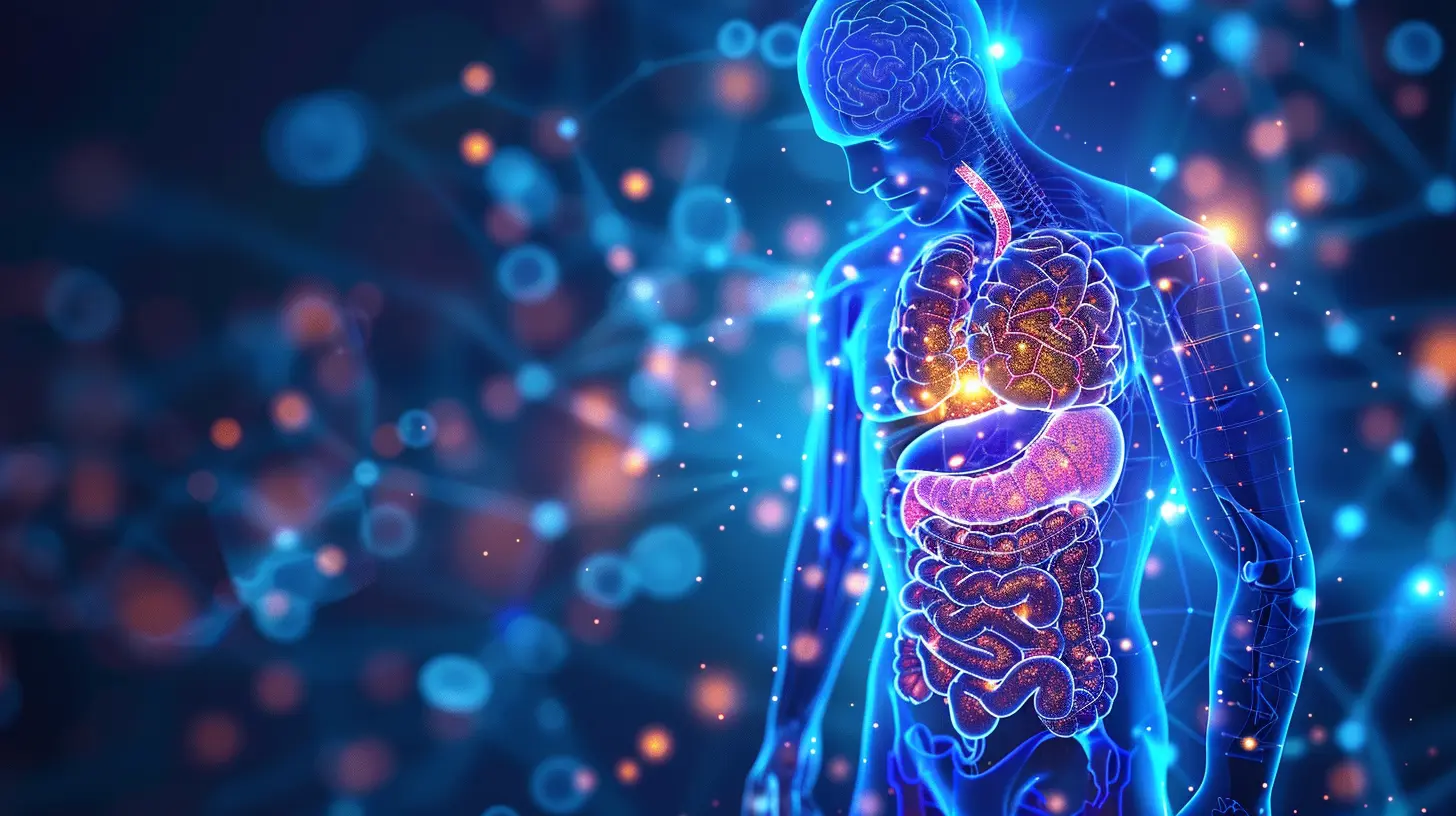
How Your Gut Impacts Your Mental Health
Alright, here’s where the gut-brain connection gets real. Studies have shown that an unhealthy gut can be linked to mental health conditions like anxiety, depression, and even neurodegenerative diseases like Alzheimer’s. Let’s break it down:1. Mood and Emotions
Remember that feel-good hormone, serotonin? Most of it is made in your gut. So, when your gut isn’t happy, your serotonin production can take a hit—and there goes your good mood. That’s why an upset tummy can often come with a side of crankiness.2. Stress Levels
Ever had butterflies in your stomach before a big presentation? That’s your gut-brain axis at work. When you’re stressed, your gut feels the pressure too. Cortisol (the stress hormone) can disrupt your gut microbiome, leading to bloating, discomfort, and more stress. It’s a vicious cycle.3. Cognition and Focus
Your gut doesn’t just handle your mood; it also affects how sharp you feel. An imbalanced gut microbiome can lead to brain fog and difficulty concentrating. It’s like trying to stream a movie with bad Wi-Fi—everything feels slow and frustrating.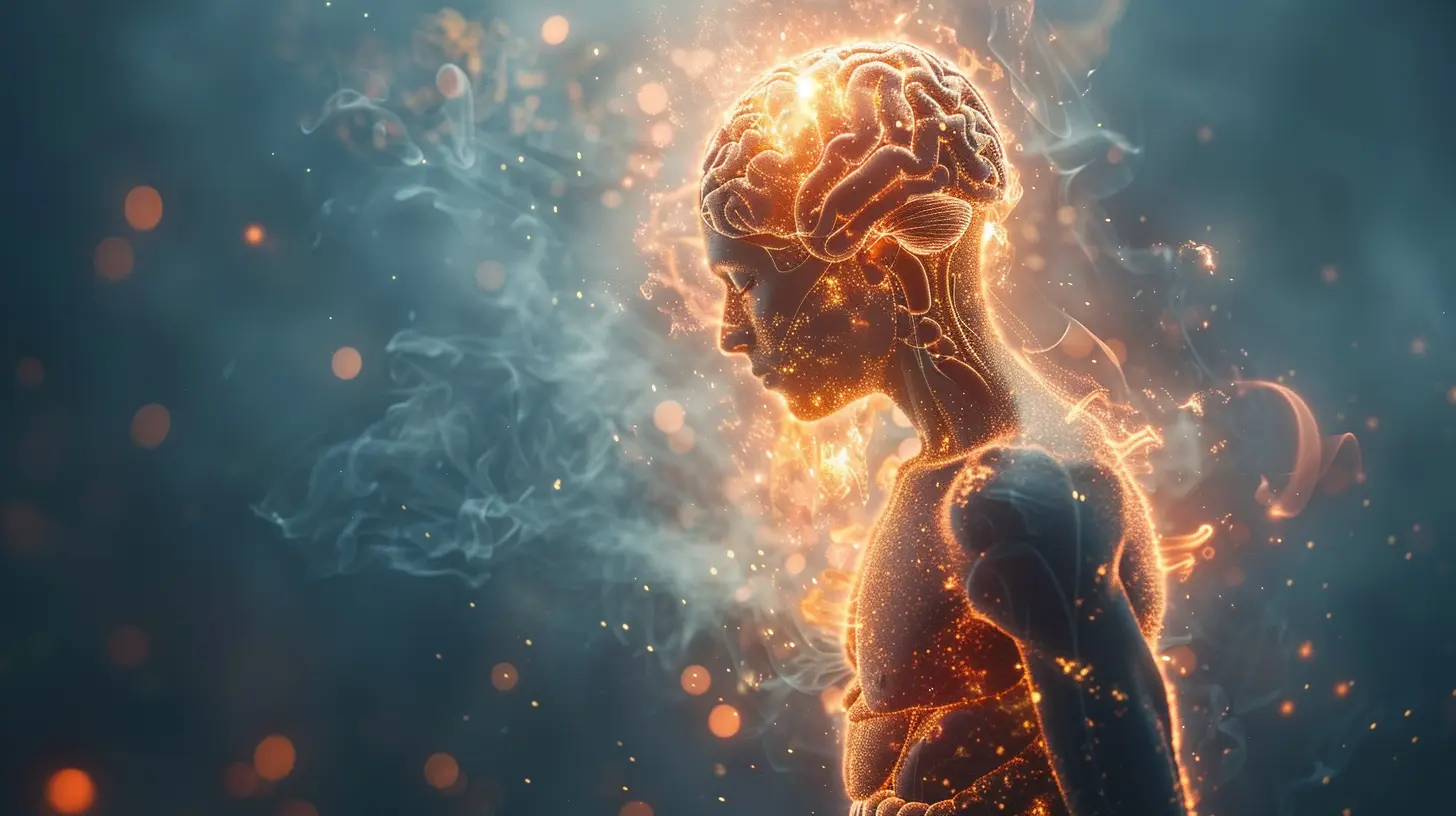
The Role of Diet in the Gut-Brain Axis
Here’s the good news: You’re not just a helpless bystander in this gut-brain saga. Your diet plays a huge role in keeping your gut happy and your brain sharp.1. Fiber-Rich Foods
Think of fiber as your gut’s BFF. Foods like fruits, veggies, whole grains, and legumes feed the good bacteria in your gut, helping them thrive. When your gut bacteria are happy, they produce short-chain fatty acids, which are like high-fives for your brain.2. Probiotics and Prebiotics
Probiotics are the good bacteria you can eat, found in foods like yogurt, kimchi, and sauerkraut. Prebiotics, on the other hand, are the food these bacteria love—think garlic, onions, and bananas. Together, they’re like the dynamic duo your gut needs to thrive.3. Omega-3 Fatty Acids
These healthy fats—found in fish, walnuts, and flaxseeds—are anti-inflammatory superheroes. They can help reduce inflammation in your gut and improve brain health at the same time.4. Limit Processed Foods
Look, we all love a good snack, but too much processed food can wreak havoc on your gut health. Sugary, greasy foods can fuel the bad bacteria in your gut, throwing the whole system off balance.Lifestyle Hacks for a Happy Gut (and Brain!)
While diet is crucial, it’s not the only player in the game. Your lifestyle choices can also have a serious impact on the gut-brain axis.1. Manage Stress
Chronic stress can mess with your gut microbiome, so finding ways to chill out is essential. Whether it’s yoga, meditation, or just binge-watching your favorite show, make time for self-care.2. Get Moving
Exercise doesn’t just benefit your body—it’s great for your gut too. Physical activity encourages the growth of beneficial gut bacteria and releases endorphins that boost your mood. Talk about a win-win.3. Prioritize Sleep
Your gut works overtime while you sleep, so skimping on rest can throw everything out of whack. Aim for 7-9 hours a night to let your body (and gut) reset.4. Stay Hydrated
Water is life, folks. Staying hydrated helps your digestive system run like a well-oiled machine, which in turn keeps your gut-brain axis humming along smoothly.Signs Your Gut Might Need Some TLC
Not sure if your gut is in trouble? Here are a few red flags to watch for:- Frequent bloating, gas, or stomach pain
- Unexplained fatigue or brain fog
- Mood swings or feelings of anxiety
- Food intolerances or cravings for sugar
- Skin issues like acne or eczema
If any of these sound familiar, it might be time to give your gut some extra love.
Small Changes, Big Impact
The beauty of the gut-brain connection is that small, consistent changes can lead to big results. Start by tweaking your diet, managing stress, and prioritizing self-care. Over time, you’ll likely notice a happier gut—and a calmer, sharper mind to match.Remember, this isn’t about perfection. It’s about progress. So, the next time you’re choosing between a salad or a greasy burger, just ask yourself: What would my gut want?
Final Thoughts
The gut-brain axis is a fascinating reminder of how interconnected our bodies are. Your gut is more than just a digestion machine—it’s a key player in your mental health and overall well-being. By taking care of your gut, you’re not just boosting your physical health; you’re giving your brain the support it needs to thrive. Pretty empowering, right?So, go ahead—start treating your gut like the VIP it is. Your mind will thank you.
all images in this post were generated using AI tools
Category:
Brain HealthAuthor:

Angelo McGillivray
Discussion
rate this article
1 comments
Mia Gomez
This article highlights the crucial connection between gut health and mental well-being. It's a reminder that what we eat significantly impacts our mood and cognitive function, making digestive care essential for overall mental health. Great read!
September 26, 2025 at 4:32 AM

Angelo McGillivray
Thank you for your thoughtful comment! I'm glad you found the connection between gut health and mental well-being insightful.
